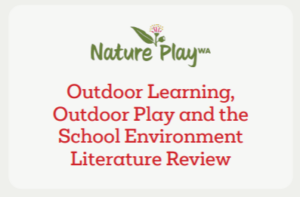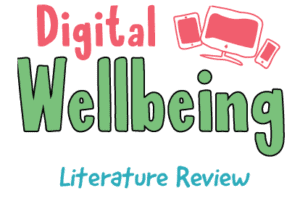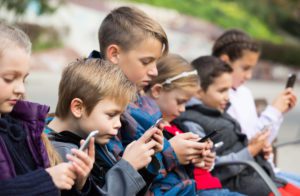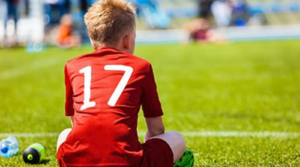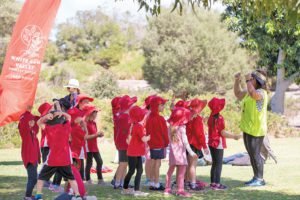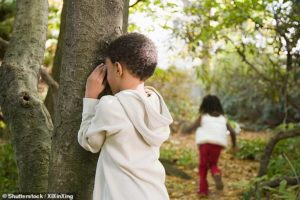Research into the importance of nature play, learning outdoors, risk-taking and children's mental and physical health and wellbeing forms the basis for the work we do.
Here you'll find the latest scientific research that shows the benefits of nature play for our children!
Use the Search function, or click on a keyword in Resource Categories to find research about a particular subject.
Nature Play WA's Research
Nature Play WA undertook a comprehensive literature review for the Education Department of WA that considers three critical elements to improving student experience and learning in school settings: outdoor learning, outdoor play and the school environment.
Nature Play WA, in conjunction with researchers from the Telethon Kids Institute, has created a ‘what you need to know’ guide for parents on the impacts of excessive screen time, highlighting new and relevant research in a clear and easy-to-understand manner.
This report, written to support Australia’s Outdoor Classroom Day, sets out not only a snapshot report on how much more playtime Australian children are getting compared to everyone else, but also an overview of why outdoor learning and play is so very important.
Curated Research
The Playtime Matters report brings together both previous research and new findings that make the case for playtimes being a key part of the school day. It shows that outdoor play at school helps develop healthy, curious and active kids who are better connected to their environment. It brings together evidence that shows that time outdoors is particularly important for children’s mental health – reducing stress, giving a sense of calm and simply making them happier.
Read MoreTo date, studies using cross-sectional methodologies make up a majority of the literature surrounding children with autism spectrum disorders and participation in physical activity and screen time. Longitudinal studies are needed to examine how physical activity and screen time behaviors co-develop for children with and without an autism spectrum disorder.
Read MoreAbstract Exposure to natural environments is associated with a lower risk of common mental health disorders (CMDs), such as depression and anxiety, but we know little about nature-related motivations, practices and experiences of those already experiencing CMDs. We used data from an 18-country survey to explore these issues (n = 18,838), taking self-reported doctor-prescribed medication for depression […]
Read MoreTo explore whether the associations between developmental delays in the first year of life and psychosocial outcomes in preschool children are affected by participation in organised sport.
Read MoreA new study from UBC researchers finds that teens, especially girls, have better mental health when they spend more time taking part in extracurricular activities, like sports and art, and less time in front of screens.
Read MoreAbstract The natural environment is associated with better behaviour and academic performance in children. However, research to date has been cross-sectional and it is important for experimental studies to investigate if a causal relationship exists. Further, participant samples from areas characterised as disadvantaged are underrepresented in the research. This study investigates the effect that lessons […]
Read MoreGrounded in cultural-historical theory, Playworlds is a model of play pedagogy where children and educators recreate a narrative through dramatization.
Read MoreThis study is the first human intervention trial in which urban environmental biodiversity was manipulated to examine its effects on the commensal microbiome and immunoregulation in children.
Read MoreThe purpose of this study was to examine whether extended use of a variety of screen-based devices, in addition to television, was associated with poor dietary habits and other health-related characteristics and behaviors among US adults. The recent phenomenon of binge-watching was also explored.
Read MoreStress reduction through contact with nature is well established, but far less is known about the contribution of contact parameters – duration, frequency, and nature quality. This study describes the relationship between duration of a nature experience (NE), and changes in two physiological biomarkers of stress – salivary cortisol and alpha-amylase.
Read More
